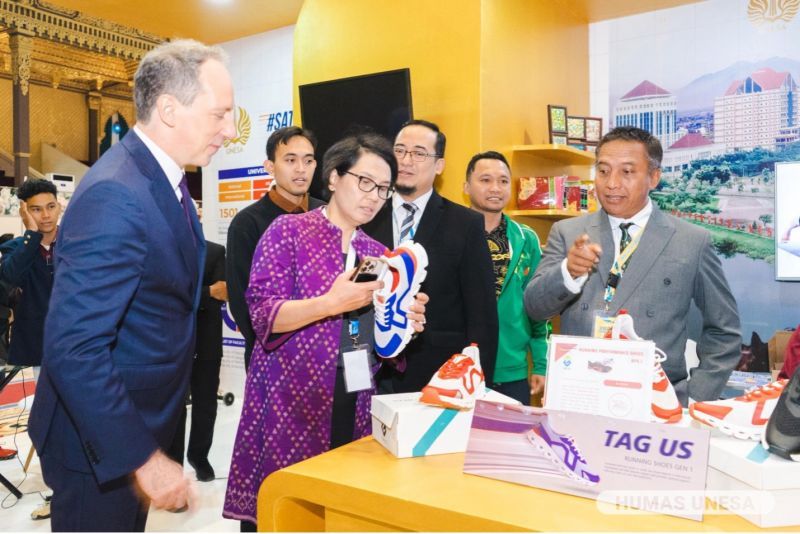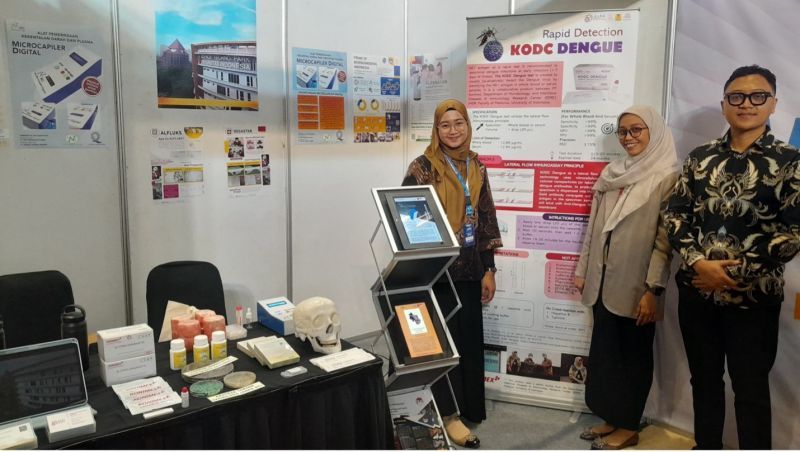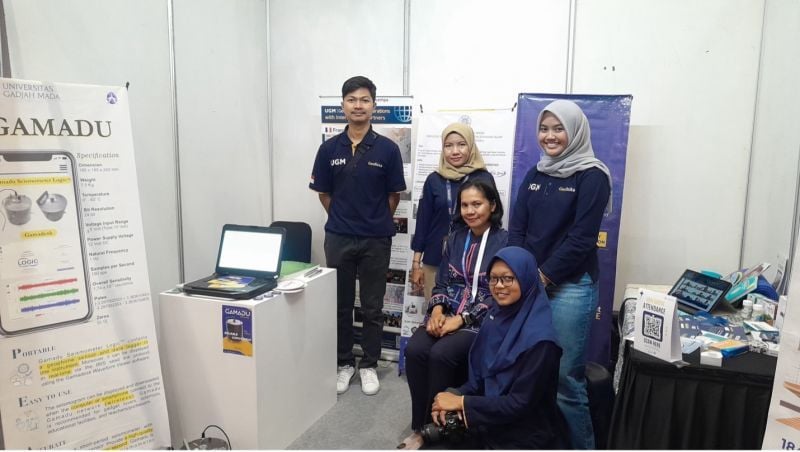Various Innovations from Universities and Research Institutions Exhibited at JWG 2024

Unesa.ac.id. SURABAYA-Universitas Negeri Surabaya (UNESA) hosted the Indonesia-France Education Exhibition which was part of the 13th Joint Working Group Indonesia-France. The Education Exhibition, which was attended by 86 tenants consisting of various universities, both from within the country and abroad, was held at Graha UNESA July 3-4, 2024.
In addition to being present at the exhibition, these universities showcased their various advantages. The participation of these universities also opened up opportunities for wider academic cooperation between Indonesia and France.
In this exhibition, UNESA as the host exhibited innovations in its flagship fields of sports, arts, and disability. In the field of sports, UNESA innovations include various applications of sports sciences, sports products, and others.
Likewise, in the field of disability, many applications are produced to facilitate people with disabilities. UNESA's innovations and products received attention from the JWG participants, including Fabien Penone, Ambassador of France to Indonesia, who was interested in UNESA's sports shoes.

In addition, the University of Indonesia showcased some of its excellence in health research. Aisya Alma Asmiranti Kartika, S.Si., M.Biomed from UI introduced their superior innovation, an early detection tool for dengue fever called KODC Dengue.
KODC Dengue uses the principle of Lateral Flow Immunochromatographic Assays (LFIAs) to detect dengue antigens, especially NS-1 protein in the patient's blood, either in whole blood, plasma, or serum.
“This tool is designed to be used independently by only requiring a drop of blood, so it can reduce costs compared to thorough blood testing,” he explained.
Its use is similar to the rapid test during the COVID-19 pandemic, where the process takes 15 minutes to determine the presence or absence of dengue infection. With sensitivity and specificity values of 100% and 99.08% respectively, this tool shows high accuracy in detecting dengue fever and helps make early detection more effective.

Furthermore, Ima, a representative from Gadjah Mada University (UGM) also introduced their superior innovation, Gamadu. The tool is a seismometer or ground shifting measurement tool produced in Indonesia since 2020.
This tool is also integrated with the internet where the results of vibrations or seismograms can be accessed via cellphone. The use of applications on this cellphone makes it easier for people to find out the initial indications of an earthquake before heading to an area.
“Currently, Gamadu has been used in three places, namely BMKG Yogyakarta, Lampung University (Unila), and Mount Merapi,” he explained.
Gamadu is very sensitive in detecting underground movement with three directions in detecting it. In its operation, Gamadu provides several data such as seismic monitoring, postholes installation, surface and subsurface faults, and geotechnical investigation. In fact, this tool has also been used for combat training to detect the presence of enemies through the vibrations produced.
In addition, there were several universities from France that participated in this activity. University Polytechnic Hauts-De-France, and Ecole Pratique des Hautes Etudes, for example, participated in this activity.
Share It On: